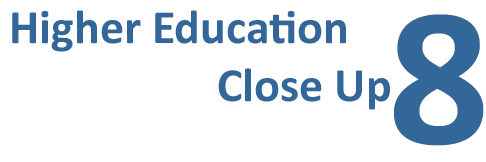(E)quality in Education - a Financial Impossibility? The Case of Liberal Arts Education in Germany
Daniel Kontowski, University of Winchester & University of Warsaw, David Kretz, Bard College Berlin
Abstract
Liberal arts colleges could embody a broad and robust social justice agenda in higher education in at least four senses. On an curricular level, we can note the egalitarian nature of learning, weakening the teacher-student dichotomy as well as disciplinary boundaries, by offering small-scale, discussion-based seminars within interdisciplinary integrated curricula. On an institutional level, the social integration of academic learning with campus-based communities promotes the self-organization of students and the democratizations of university bureaucracies. Their general non-vocational mission shows a healthy distance towards the neo-liberal marketization of higher learning, and an alternative to a structured higher education system that tend to reproduce social injustices. Finally, the size and flexibility of liberal arts colleges often make them the ideal incubators for radical, even utopian, educational experimentation. (see McArthur “think piece” as well as: Nussbaum 2010, Roth 2014) Though traditionally associated with the U.S., both Western and Eastern Europe have seen a surge in liberal education institutions since the 1990s (van der Wende 2011; Godwin 2013; Godwin 2015), half of them private. Yet unlike some of their US counterparts, they face a financial trilemma: without a supportive culture of private philanthropy, and lacking public support, they increasingly rely on tuition and slash financial support for students. This way they put their social justice potential at stake, and risk becoming elitist and exclusionary. Germany is the prime example of a case where close to zero state-funding was available, yet liberal arts institutions constitute a visible part of its private higher education system (Frank 2010). We undertake a close-up analysis of five German liberal arts institutions to identify the resiliency-increasing features and strategies, both on the curricular and the institutional level, that best allow them to realize their egalitarian and utopian potential even under adverse financial circumstances. To this end we combine quantitative and qualitative approaches, looking at a range of institutional and curricular variables and contextualizing numbers through a series of interviews with key personnel. The paper to be presented contains preliminary results of our study.
Keywords
Liberal Arts, liberal education, German higher education, private universities, curriculum
Conference Organisers
Paul Trowler
Lancaster University, UK
Alice Jesmont
Lancaster University, UK
Malcolm Tight
Lancaster University, UK
Paul Ashwin
Lancaster University, UK
Murray Saunders
Lancaster University, UK
Chrissie Boughey
Rhodes University, South Africa
Suellen Shay
University of Cape Town, SA

